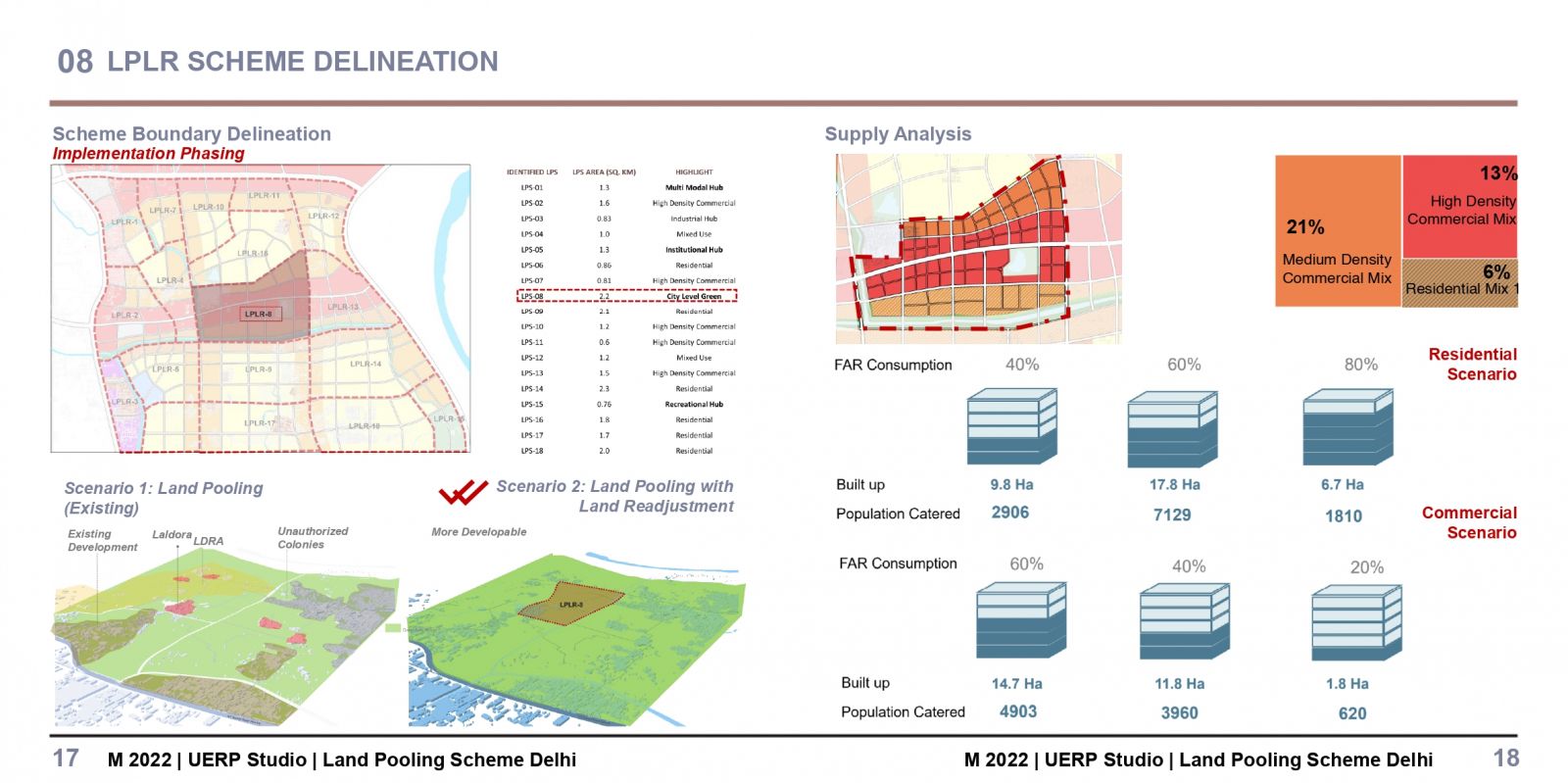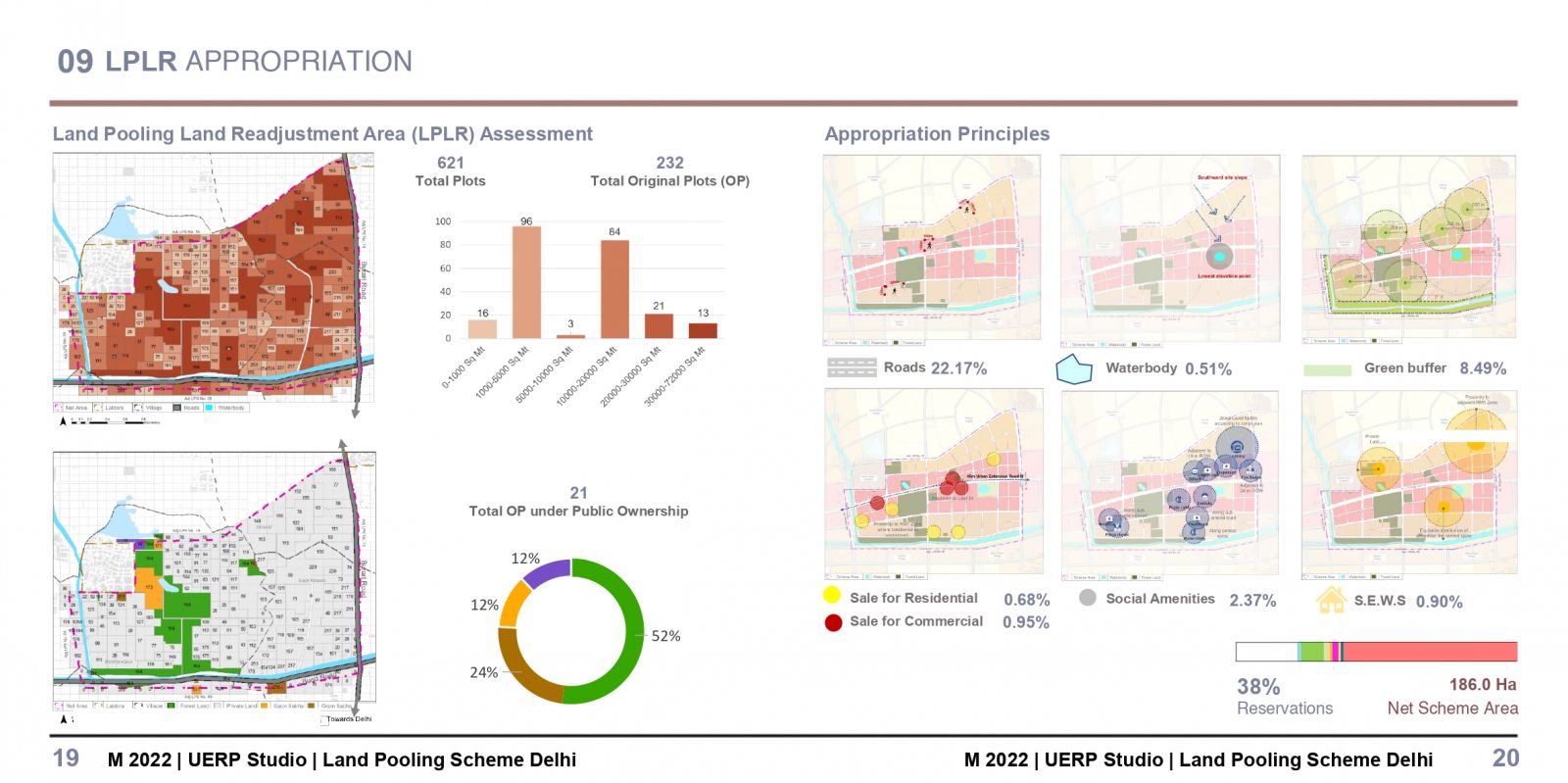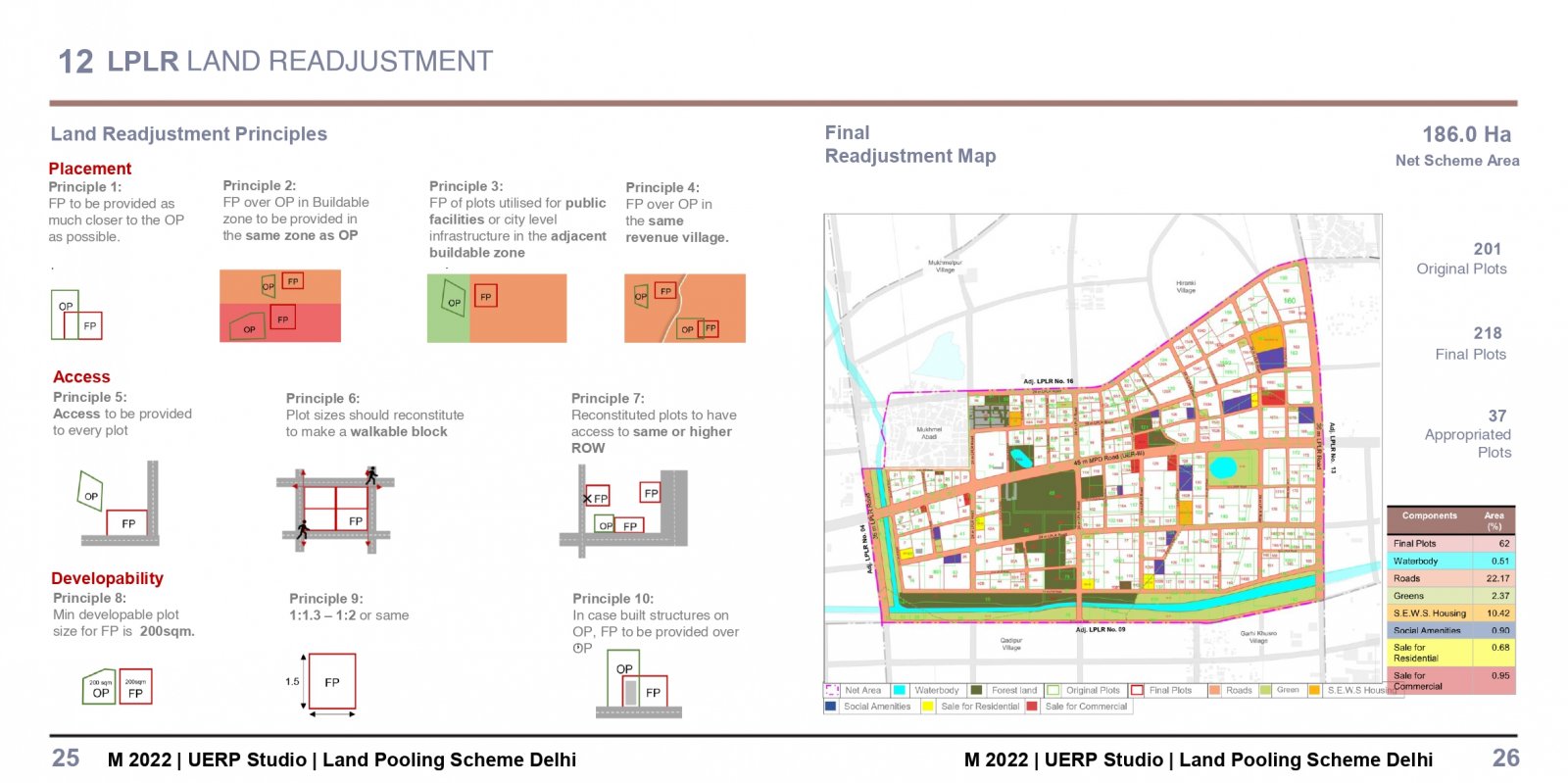- Student DIYA HALDER
- Code PUP21109
- Faculty Planning
- Tutor/s Jignesh Mehta,Arun Kumar,Utkarsh Patel,Amit Gotecha,Harsh Bhasin
Land Pooling policy was introduced in 2013 and again revised in 2018 for an improved approach in Delhi’s Micro planning context. But the policy lacks the ability to cater to what it promises to deliver. The gaps that are there in the current policy in terms of its implementation, understanding, as well as public participation were reimagined to envision a clearer, simpler policy involving participatory planning to make it successful. The necessity to reduce the demand for affordable housing and encourage the market to increase the supply has been taken into consideration because doing otherwise would promote growth in informality and unauthorized constructions. A focus has also been placed on the requirement for mixed-use zones that enable the market to make choices based on potential and demand. Green incentives, the implementation of sustainability mechanisms, ecologically responsible planning that considers the topography and watershed already there, and the provision of green buffers to restrain development and manage density are all ways that are reconceived to prevent further disasters.









